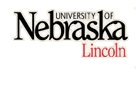 Training
in clinical psychology and law
Training
in clinical psychology and law
The UNL Clinical Psychology
program collaborates with the UNL Law Psychology program to prepare
students
for careers in research and clinical practice that combine behavioral
science,
mental health and legal scholarship. Forensic Psychology trainng may fall within two tracks, namely the
Ph.D.-M.L.S.
track or the Forensic
Psychology Minor within the Clinical Psychology Training Program.Areas of study within clinical psychology and
law include mental health law and policy, and forensic psychology. Students interested in
mental health law, policy, therapeutic jurisprudence or other
applications of
law in clinical psychology should contact clinical faculty with
interests
similar to their own. Faculty interests
are described at http://www.unl.edu/psypage/.
Ph.D.-M.L.S. Track
This track involves earning the Master of Legal Studies (M.L.S.) degree as well as the Ph.D. in clinical psychology.
The Master of Legal Studies Degree Program
Clinical
Ph.D./M.L.S. applicants
must apply to the
Forensic Psychology Training at the University of Nebraska-Lincoln includes the Ph.D. in clinical psychology and Masters of Legal Studies (M.L.S.). Students are admitted to both the Clinical and Law/Psychology Programs. The goal of training is specialization in forensic practice and research. Individuals with such training are expected to perform legally-informed research and clinical practice related to forensic mental health issues.
The UNL Forensic
Psychology
Training Program is designed to prepare students for careers in
research and
clinical practice related to forensic and legal processes.
The Program is operated jointly by the
Clinical Psychology and Law Psychology programs. Both
programs strive to train scientist
practitioners who engage in legally sensitive clinical and research
activity.
This program best suits the applicant who desires to engage in active
research
and clinical activity. The Forensic Psychology Training Program is
not
intended for individuals who desire training in “behavioral profiling”
or
“criminal investigative analysis”.
academia
policy settings
military/threat assessment settings
public sector mental health settings
correctional settings
Forensic
Psychology Minor
Forensic Assessment
Mental Health Law
Law & Behavioral Sciences Prosem or Topics in Law and Psychology
At least one of the following law courses for at least three
credits
after the above courses:
Criminal Law
Criminal Procedure
Family Law
Juvenile Law
Torts
(Other related legal coursework with the approval of supervisory committee)
J.D.-Ph.D. option
This option is available only to those students who wish to pursue interests that overlap across areas of mental health, criminal justice, or psycho-legal policy that would warrant obtaining both a clinical Ph.D. as well as a JD. Applicants interested in this option should contact faculty within their area of interest within both the Law-Psychology and Clinical training programs to discuss whether this option would be appropriate for their career goals. Students who pursue this option must be accepted to the clinical psychology program, the law college, and the law and psychology programs.